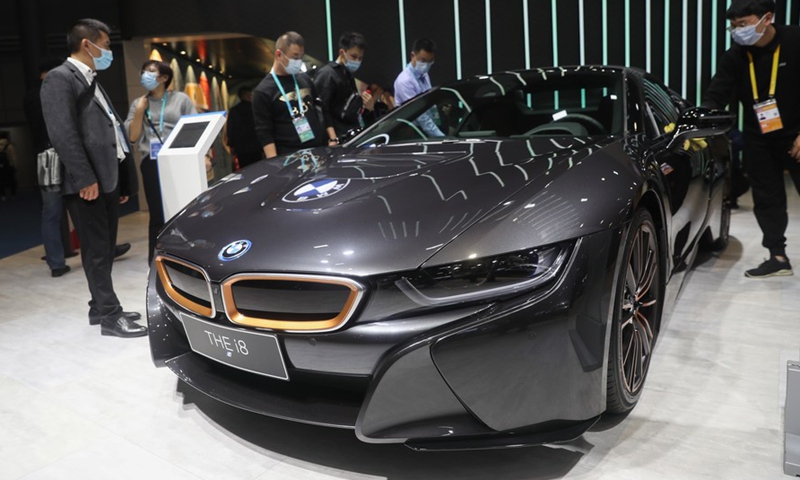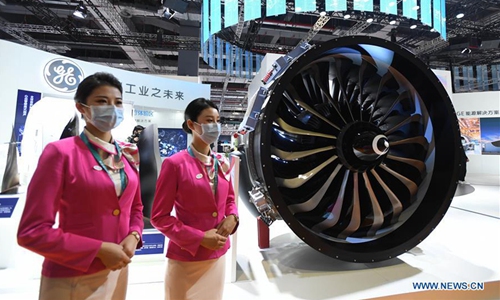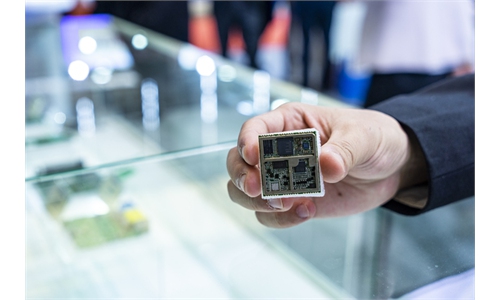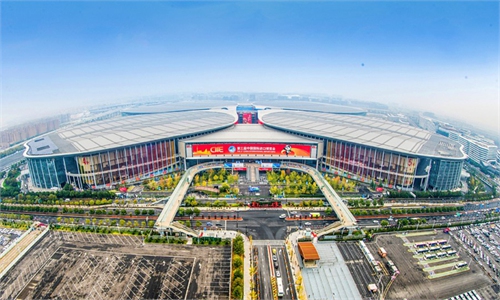
A BMW i8 car attracts visitors at the Automobile exhibition area during the third China International Import Expo (CIIE) in Shanghai, east China, Nov. 6, 2020.(Photo: Xinhua)
To bolster the sound development of the China International Import Expo (CIIE), a Shanghai deputy to the National People's Congress (NPC) proposed additional policy support to ensure that items shown at these events become available in the Chinese market after the expos end to boost exhibitors' enthusiasm to participate.
The proposal was made by NPC deputy Zhang Weimin, a deputy general manager at Eastbest & Lansheng Group Shanghai International Trade Promotion Co, who pointed out that practical, forward-looking support policies are important in securing better CIIEs.
Policies involving tax breaks, convenient customs clearance and market access already exist, but there are problems such as lack of clarity about these policies, additional conditions, gaps between import policies and market requirements, and the openness of market access in some cases that lags far behind China's economic development, Zhang pointed out.
With regard to this, Bai Ming, deputy director of the Chinese Ministry of Commerce's International Market Research Institute, told the Global Times on Tuesday that turning exhibits into actual products in the market is a complicated issue that requires balanced consideration and discussion based on different classifications.
"The prices of some items are very different from similar domestic products, and they can have a great impact on domestic products and lead to unfairness. Some food items also face the shelf-life problem, and concerns exist on the time and cost of sending them back overseas," said Bai, noting that policies involving different categories cannot be generalized.
Statistics from China's General Administration of Customs show that China's cross-border e-commerce imports reached 570 billion yuan ($87.36 billion) in 2020, up 16.5 percent year-on-year.
While the "lifestyle" models of pick-ups popular in other countries are expanding in the Chinese market, pick-ups are classified as commercial vehicles under domestic standards. As a result, it's difficult to import them due to China's fuel economy standards. Some developed cities where there is strong demand for these vehicles ban them from urban areas, undermining exhibitors' enthusiasm.
An insider at a foreign motor vehicle manufacturer told the Global Times on Tuesday that exhibitors do expect related transportation policies can be loosened.
The CIIE, considered by many multinationals as a vital gateway to the immense Chinese market, has acquainted Chinese consumers with a variety of foreign brands, essentially helping foreign businesses to achieve success in China, experts said.
They expect a slew of pro-import policies to be in the pipeline to enable future CIIE participants to reach out to Chinese consumers in a more effective way, rendering the annual event a booster for Chinese imports.
In the first two months of the year, China's imports rose 14.5 percent in yuan terms, according to customs data.



